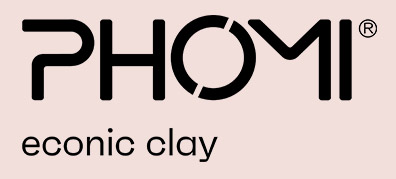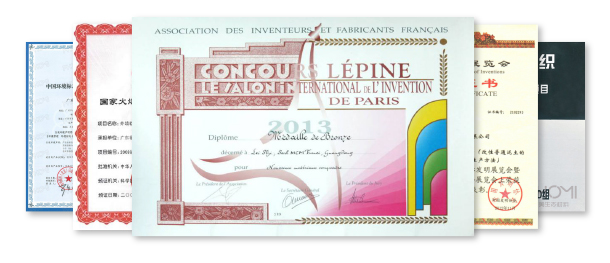1. Industry Position
Phomi is a leader in materials technology.
We combine the modern digital technology with the spirit of traditional craftsmanship, continue to innovate in the application of environmentally friendly econic clay, and provide customers with products that can create a better future.
2. Mission
We are committed to creating sustainable materials for mankind.
Adhering to the pioneering spirit, responding to the emerging environmental challenges faced by the earth's residents, and developing material solutions that keep pace with the times and develop sustainable development.
3. Vision
To join hands with more partners to build a sustainable world with materials technology
We believe that it is human nature to do our best to create a better living environment. In the next 10 years, our soft porcelain (MCM) will become the number one sustainable building decoration material.
4. Values
Phomi takes value creation as the core.
Customer-oriented innovation
Safety, health and environmental responsibility
Phomi talent view
Mutual respect and frank dialogue
Honesty

In the autumn of 1974, a teenager named Shi Lei in Guangxi, after watching the elders drove cattle and stepped on the mud and then made bricks, had a dim idea in his mind—change the nature of the soil in the most primitive way to make building materials.
In the summer of 1976, the teenager put his ideas into practice, mixing rice stalks with mud, cow dung, and lime water and sticking them to his own fence. In this way, an earth wall that has not been calcined and compacted but can withstand wind and rain was created.
In 2000, he established an EOSD laboratory in Guangzhou, China, which specializes in researching various sands and changing the properties of these sands as industrial raw materials; in order to absorb better advanced technology, he moved the laboratory to the United States, namely USA ENVIRon-MENTAL OPTIMIZATION & SUSTAINABLE DEVELOPMENT ENGINEERING LTD.CO.

In 2008, Shi Lei returned to China with the research and development results of environmentally friendly econic clay (MC) technology, and founded PHOMI MCM CO., LTD. in Panyu, Guangzhou. The predecessor was Guangdong Phomi Soft Porcelain Co., Ltd., and the PHOMI brand was officially born. The PHOMI brand is also the origin of the PHOMIHOLDING brand. ; In 2012, the Phomi team as the editor-in-chief unit compiled the national industry standards "MCM Modified Inorganic Powder Composite Building Facing Sheet" and "MCM Application Technical Regulations", which established the leading position in the industry; since 2014, Phomi has successively edited The MCM (soft porcelain) industry standards of Malaysia, India, Indonesia and South Korea have promoted the formulation of the MCM (soft porcelain) industry standards in the United States and the European Union, and gradually realized the environmentally friendly econic clay (MC) derivative products and its Globalization of industry standards.
In 2016, PHOMI started to deploy factories globally. In less than three years, it has established more than 1,000 environmentally friendly econic clay (MC) product display centers in 56 countries and more than 180 cities around the world. , Northeast, Northwest, overseas Singapore, India, Czech Republic, etc. have established fully intelligent production bases. Formed by the development and growth of PHOMI, Phomiholding is committed to the research and development of new environmentally friendly activated soil materials and their derivatives, as well as the construction and promotion of industrial development models. It has 11 subsidiaries distributed around the world, two of which are national high-tech enterprise.
Member Units of UNESCO
Gold Award of International Invention Exhibition
Award Certificate of the 112th Paris World Invention Expo
China Environmental Labeling Product Certification
Certificate of National Torch Program
......

Soft Porcelain is the core product of Phomiholding. It is an environmentally friendly building decoration material formed by the hybridization of econic clay and environmentally friendly polymer. The academic name is "Modified Inorganic Powder Composite Material (Modified Clay Material)" , The Chinese translation of "modified inorganic powder composite architectural facing sheet", MCM is its English abbreviation.
At the beginning of birth, it is commonly called soft porcelain because of its appearance and softness. Later, with the development of technology, it can be upgraded to imitation stone, imitation animal skin texture, imitation wood grain, etc. Anything imaginable, soft porcelain can be realized.
Econic clay takes a long time to self-harden and form, but has long weather resistance. Through hybridization and cross-linking of polymers, soft porcelain products derived from econic clay can be industrialized.

Since the creation of soft porcelain by Phomi, there have been many products advertised and promoted in the name of soft porcelain on the market. From the technical origin to the production process, from the product quality to the use effect, they are very different from the real soft porcelain.
Real soft porcelain
Use natural soil/stone powder/quartz/mineral powder/volcanic ash/fly ash and other inorganic substances as raw materials for production. These natural inorganic substance are classified according to their natural four colors of red, yellow, gray and white, when they are collected. Then the active and inactive substances of the same color are mixed and crushed into microscopic powder in a certain proportion. After that, we can get the natural inorganic powder with high activity of four colors by using fluorine- or nitrogen-containing surfactants to coat and modify the surface of the particles.
Fake soft porcelain
Common fake soft porcelain on the market includes the following:
Made by mixing inactive powder (fine sand / calcium carbonate, etc.) with acrylic emulsion;
Made from the raw materials of coating;
Synthesized with cement and waterproofing agent;
Made of colored sand and water-based emulsion, etc.
Hazards of fake soft porcelain
The artificial aging resistance and weather resistance test of fake soft porcelain generally do not reach 2000 hours, and many of its environmental protection indicators will exceed the standard, and it is difficult to pass the EU CE certification and the US UL certification. Once the fake soft porcelain is used on the exterior wall, it is easy to lose its color or chalk. And it is harmful to the human body when the fake one is used for interior finish.
Fake soft porcelain made of inactive materials or paint raw materials
When applied to exterior walls, it is easy to chalk and lose color, and its service life has 10 times difference from the real one’s.
Inspection method: Check whether the inspection report has undergone type sampling inspection? Does its artificial aging test report reach more than 2000 hours? Is it compliant? Is the color bright? (the color of real soft porcelain is calm and not bright)
Fake soft porcelain made of cement
When applied to exterior walls, it will alkali efflorescence under the action of rainwater, making the building dark and greatly reducing the aesthetics of the building.
Inspection method: Naturally dried after soaking in water for 24 hours. If the surface of the end that enters the water is white, it is a fake soft porcelain made of cement.
Fake soft porcelain made of colored sand
When applied to exterior walls, it is sticky under the hot sun, and it is easy to absorb dust in the atmosphere, making the building facade gradually gray, reducing the aesthetics; it is easy to age in the sun and rain.
Inspection method: Make the surface temperature reach 70 degrees by heating, and if it feels sticky to the touch, it can be judged as fake soft porcelain.
Other test methods of real and fake soft porcelain
1. The fire performance of real soft porcelain can reach class A, and most of the fake soft porcelain can only reach class B or class C.
Intuitive detection method: open flame burning, if it continues to flame, it can basically be judged as fake soft porcelain.
2. Inspection method: The longer the real soft porcelain is soaked in water, the harder it will become, and it will not turn white and not fragile when broken into small pieces and rolled by hand. After four hours of soaking in water, the fake soft porcelain will easily become powder or gelatinous when rolled by hand.
3. The fake soft porcelain test report is generally imitated by PS, or some of the figures are imitated by PS. Real soft porcelain will have a complete set of national-level "Type Sampling Test Report", "Class A Fire Test Report" and related certificates, etc., and its data are in line with various performance indicators of the industry standard—"Modified Inorganic Powder Composite Architectural Finishing Sheets".

Headquarters: 15/F, Building A2, No. 23 Guangpu Middle Road, Science City, Huangpu District, Guangzhou City, Guangdong Province, the PRC
Phomi Materials Industry Research Institute: Block 16, Guang Fo Shang Cheng, Nan Hai District, Fo Shan City, China
Hotline: 13928832061(China) , +8613928802403(Overseas) E-mail: market@phomi.com
粤ICP备15108089号 © PHOMI 2021